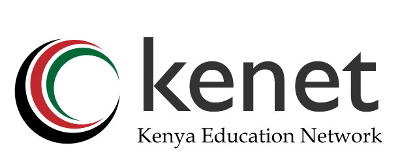You are here
FAQs
- What is KENET?
Kenya Education Network (KENET) is the National Research and Education Network (NREN) of Kenya that promotes the use of ICTs in teaching, learning and research. It was formed in 1999 as a trust and provides affordable, cost-effective and low-congestion Internet bandwidth services to Education and Research Institutions. We currently serve 100+ education and research Institutions in Kenya.
- What is a NREN?
A National Research and Education Network (NREN) is a recognized entity dedicated in promoting the use of ICTs in education and research within a country. NRENS are specialized Internet service providers and are distinguished by support of a high-speed network backbone, serving the ICT needs of education and research institutions.
- What are the services offered?
Besides providing high-speed Internet, KENET provides an array of services to its members. Our services range from research, education, connectivity, enterprise, and capacity building services. We also provide shared services such as; co-location of servers, dedicated virtual servers for e-learning systems, as well as video and web conferencing. Comprehensive information on our services can be found on ‘Our Services’ tab or our e-brochure.
- Who is eligible to be a member?
KENET only serves education and research institutions. However, other institutions that are indirectly related to education and research can join as affiliate members. Categories of KENET members are as follows:
Full members: Include all universities and university colleges, research institutes, tertiary technical colleges, public or university libraries, and teacher training institutions among other educational institutions
Affiliate members: Institutions, ICT regulatory bodies, Governmenr boadies, school associations or networks, professional associations, development partners, hospitals and nursing schools affiliated with university medical schools and other bodies associated with education and research in Kenya
- How do I become a member?
The process of becoming a member is very easy and straightforward. Institutions interested in becoming members must fill in the membership application forms which can be downloaded on our website or a hard copy delivered to you upon request. Once filled, the forms should be signed and emailed to memberservice@kenet.or.ke or delivered to the KENET Secretariat offices.
Application form for KENET membership can be downloaded here or application made online
Application form for KENET Affiliate membership can be downloaded here or application made online
Note: Academic or Research Institutions applying for membership must submit necessary legal documents such as certificate of incorporation, Interim Letter or Charter issued by Commission for University Education or letter of recognition Ministry of Education.
- What are the charges of becoming a member?
A one-off fee, which covers the cost of setting up infrastructure for Internet connection is paid when a member joins KENET. An affordable membership fee which is paid yearly. In addition, the pricing bands for our services vary according to the amount of bandwidth capacity subscribed to, the services one is interested in, and the size of an institution. Being a not-for-profit organization, we are flexible in accommodating the needs of our members and any institution seeking to come on board.
- What are the benefits if I become a member?
-
Affordable broadband Internet and connectivity services
-
Capacity building for your ICT staff
-
Access to advanced research services and global high-performance computing facilities (e.g., Africa Science Grid Gateway)
-
Academic cyber security support services (i.e., CERT services)
-
Opportunities for research collaboration with universities and researchers in Kenya, Africa and Globally
-
Access to affordable shared services such as collocation of servers, virtual servers or remote storage for e-learning, research and administrative information services.
-
Advanced ICT advisory services in campus network design, network diagnostics, ICT infrastructure procurement and project management, and campus security.
-
Academic and higher education ICT community support for ICT staff, ICT directors, faculty, researchers, and senior leadership of member institutions (e.g., Vice Chancellors)
